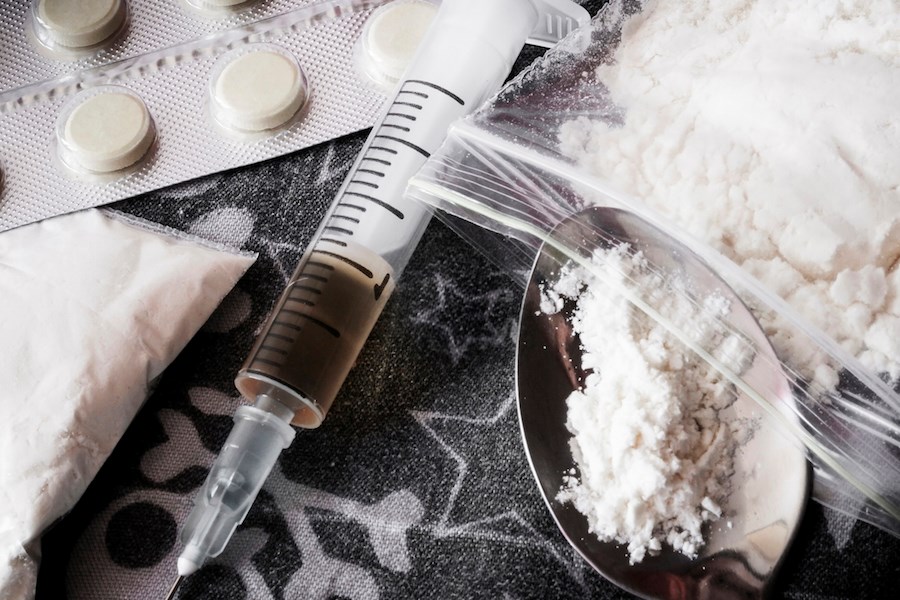This week the BC Coroners Service shared the latest overdose death count: 201 people died in October from illicit drug poisonings. That’s the highest number of fatalities in a single month during what has already been the single worst year of what is now the fifth year of the worst drug crisis in our province’s history.
More than two hundred people dead. For those of us who lost someone we know that month – or the month before that, or the month before that – this all hits like a tidal wave of grief.
It’s not just in B.C. Overdoses and overdose deaths have been increasing across the country since the pandemic. Alberta and Ontario, along with British Columbia, are experiencing the highest rates of overdose on record. Nationally, overdose deaths are on pace to reach an all-time high in 2021.
The reports from the coroners' service, Stats Canada, and other health surveillance bodies are now anticipated with a special kind of dread those of us working in public health. It’s not just because the reports are a stark reminder of all those we’ve lost, it’s also because we know exactly what’s coming before the reports ever get published.
Rising rates of deaths due to our toxic drug supply have sadly come to be expected. We’ve watched overdose fatalities go on an upward trajectory for the past two years with only small announcements of initiatives from various levels of government. For years, it’s been nothing but incremental changes. A pilot project here, a few new treatment beds there. Nothing substantial has changed with our laws and policies that are leading to so many deaths. And so, the deaths keep happening.
Change nothing and nothing will change.
This is precisely how little has changed since the overdose public health emergency was declared in 2016: back then the best advice we could give someone who uses drugs was to not use alone; more than five years later the best advice we can give is to not use drugs alone.
Again, change nothing and nothing will change.
Compare this to the response to the pandemic. For the past 18 months, we’ve watched our politicians mostly take a back seat as science and public health have informed our responses to COVID-19. Daily briefings and information and data sharing have kept the public aware of what’s happening and why. Politics are taking the lead from public health. You hear them say it all the time when explaining why there are mask mandates or with vaccine rollout plans.
They’re following the advice of public health experts. Government’s role has been to listen, follow recommendations, fund where necessary, and change policies as needed. Why should it be any different when it comes to overdoses?
And yet it is different. Case in point: nearly two years ago, B.C.’s provincial health officer, Dr. Bonnie Henry, released a report calling for the decriminalization of people who use drugs. The report provided a blueprint for how to make this possible in B.C. It was met with resounding silence from policymakers in large part because it was a public health response that wasn’t politically viable. Fast forward two years and that’s suddenly changed: most Canadians support decriminalization. As a result, the province (as well as the cities of Vancouver and Toronto) have submitted applications to the federal government to approve this policy approach. How many people died over those two years while we waited for decriminalization to become good politics?
Here’s what public health experts tell us about overdoses: the illicit drug supply has led to increasing toxicity and inconsistency. Drugs that are unregulated are killing people and the best, immediate response to saving lives is to separate people from the illicit drug supply through a regulated safe supply. But such an approach is not politically viable. At least, not yet.
If we wait for politicians to come around on what’s needed to end overdoses, soon we’ll see 250 dead in a month in this province. We’ll see overdoses continue to rise across the country, 4,000 deaths a year becoming 5,000 deaths and then 6,000 deaths. At what point does the death count become so great that the politics catch up to public health?
We cannot afford to wait for that time. We need politicians to treat substance use like a health issue, not a political issue. Get the politics out of public health. Lives depend on it.
Guy Felicella is a Peer Clinical Advisor at the BC Centre on Substance Use. Follow him on Twitter at @guyfelicella.






